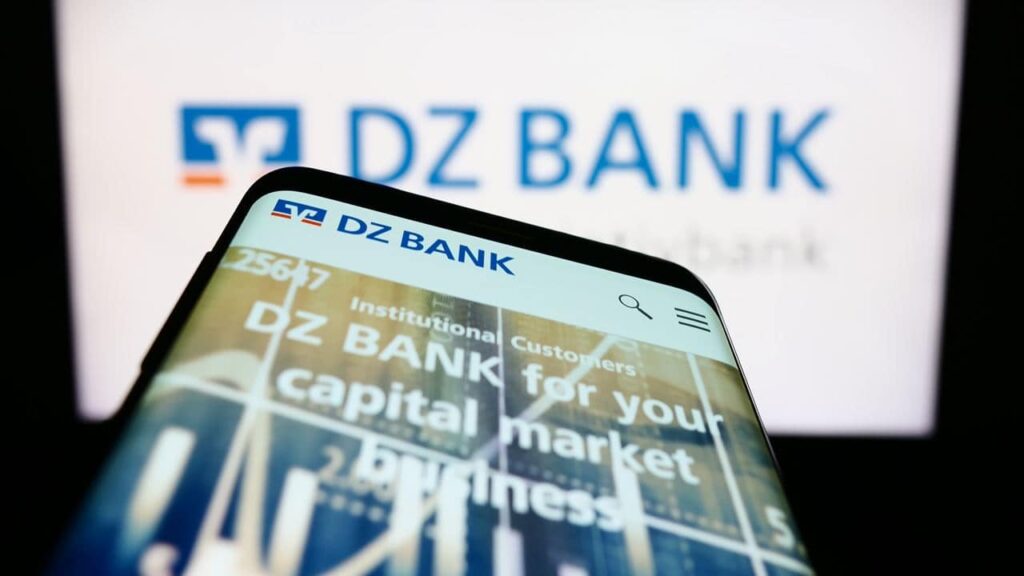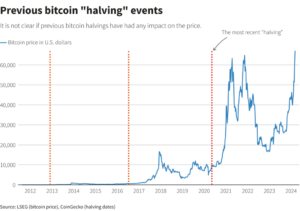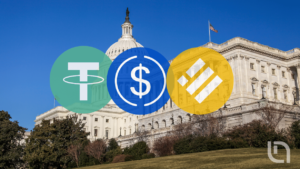- DZ Bank announced the establishment of a digital asset custody platform that will bridge the gap between traditional banking stems and digital assets.
- Ripple has doubled its efforts to promote digital asset adoption after its US-SEC.
- In 2020, Germany made it a requirement for all crypto-based organizations to acquire a crypto license from BaFin.
As 2023 draws close, the crypto industry is finally gaining traction. Currently, Bitcoin is steadily rising as it enters its anticipated Bull run. In addition, decentralized applications have significantly grown in popularity. The efforts of a few global payment systems like Visa, Mastercard, and PayPal have inspired many to establish blockchain platforms that accept crypto payments.
This trend has significantly grown, and now, traditional extensive systems have taken a positive step toward establishing crypto payment gateways. In recent developments, Germany’s crypto ecosystem continues to awe and inspire the globe. The region’s progressive take on digital assets and blockchain platforms has led to an increased number of blockchain startups and crypto payment gateways.
Recently, DZ bank partnered with Ripple Exchange to launch its digital asset custody platform. This latest achievement signifies the constant growth of Germany’s crypto ecosystem and is a testament to the radically shifting tide the globe is experiencing.
DZ Bank partners with Ripple
Germany is among the few developed nations that have taken an active role in transitioning its country toward the fourth industrial revolution. Since 2018, the government has experienced an increased surge in blockchain and crypto activities. In its most recent development, DZ Bank, a renowned regional bank, partnered with Ripple Exchange to establish its blockchain platform.
On November 2nd, DZ Bank announced the establishment of a digital asset custody platform that will bridge the gap between traditional banking stems and digital assets. According to the announcement, the blockchain platform will work with institutional clients, offering them crypto securities like bonds. DZ Bank has highlighted its interest in entering Germany’s crypto ecosystem. To achieve this, it partnered with Siemens, a leading Industrial Conglomerate organization.
Holger Meffert, head of securities services and digital custody at DZ Bank, highlighted the Bank’s interest in blockchain platforms. He said, “We assume that within the next ten years, a significant proportion of capital market business will be processed via distributed ledger technology (DLT)-based infrastructures. In the medium term, we see DLT as a complementary technology to the established infrastructures in the existing capital market processes.”
Also, Read the Impact of stablecoins and CBDCs on Africa’s digital economy.
Furthermore, DZ Bank seeks to acquire a crypt custody license from the Federal Financial Supervisory Authority (BaFin). This step will smoothen the actualization of their digital asset custody platform and enable institutional customers to explore digital assets like Bitcoin.

DZ Bank initiates its crypto journey by establishing a digital asset custody platform with Ripple.[Photo/Medium]
Ripple Exchange has also highlighted its intent to regain its former glory. After winning consistent legal battles with the US SEC, Ripple has doubled down on its efforts to promote digital asset adoption throughout the region. Their native token, XRP, has regained over 33% of its overall value a few weeks after the lawsuits.
In addition, as Germany’s third largest Bank, DZ Bank will set the pace for its peers and increase the use of the Blockchain platform throughout the region. The Bank also actively participates in the European Central Bank’s (ECB) exploration phase. They are testing the settlement of large capital market transactions using CBDCs to ascertain its functionality and use.
Germany’s crypto ecosystem is steadily rising.
DZ Bank partnering with Ripple Exchange is not a monumental event. Germany’s crypto ecosystems have steadily thrived through the intervention of its governments. Currently, many German banks have shifted towards crypto adoption. This is due to the implications of the country’s strict industry regulatory regime.
In March 2023, Deutsche Wertpapier Service Bank launched its wpNex crypto trading platform, giving 1200 banks and savings banks in Germany access to the digital asset industry. Furthermore, the blockchain platform announced its current agenda to introduce exchange-traded products of cryptocurrencies in the European Market.
Gernamy’s crypto ecosystem, like many others, initially started through the efforts of individual traders. Over the years, its trading volume has increased, leading to an insurgency of blockchain enthusiasts. In April 2023, the European Parliament lawmakers passed the Markets in Crypto Assets Regulatory framework. The documentation aims to protect investors and preserve financial stability without hindering the region’s digital asset adoption.
Compared to other European countries, Germany’s crypto ecosystem has taken active steps to regulate the use of digital currency. In 2020, Germany made it a requirement for all crypto-based organizations to acquire a crypto license from BaFin. This protected investors and trades from any money laundering schemes and provided conducive environs for crypto exchanges that obtained it.
Also, Read Crypto cushions Turkey & Syria from the earthquake aftermath.
In addition, Germany’s crypto ecosystem is among the few worldwide to establish a taxation system. According to its laws, all profits from crypto of less than €600 per year are tax-free. Cryptocurrency is subject to capital gains tax if held for less than a year before being traded or sold. However, if held for longer, it is exempt from this rule.
These active approaches have significantly propelled the regions into transitioning to decentralized applications.
DZ Bank and Ripple Exchange have inspired other banks like Commerzbank and DekaBank to seek a crypto license from BaFin. If this partnership successfully launches the digital asset custody platform, it will cause a ripple effect throughout the region. Gemrany’s crypto ecosystem is already thriving, but with the incentive of cooperation between banking systems and digital assets, it will overhaul its progress.
- SEO Powered Content & PR Distribution. Get Amplified Today.
- PlatoData.Network Vertical Generative Ai. Empower Yourself. Access Here.
- PlatoAiStream. Web3 Intelligence. Knowledge Amplified. Access Here.
- PlatoESG. Carbon, CleanTech, Energy, Environment, Solar, Waste Management. Access Here.
- PlatoHealth. Biotech and Clinical Trials Intelligence. Access Here.
- Source: https://web3africa.news/2023/11/09/news/dz-bank-ripple-digital-asset-custody-germany/
- :has
- :is
- :not
- 2018
- 2020
- 2023
- 33
- 7
- a
- Accept
- Accept crypto
- access
- According
- Achieve
- achievement
- acquire
- active
- actively
- activities
- addition
- Adoption
- After
- agenda
- aims
- All
- already
- also
- among
- an
- and
- announced
- Announcement
- Anticipated
- any
- applications
- approaches
- April
- ARE
- AS
- asset
- Assets
- assume
- At
- authority
- BaFin
- Bank
- Banking
- Banks
- battles
- BE
- before
- being
- between
- Bitcoin
- blockchain
- blockchain enthusiasts
- blockchain platform
- Blockchain Startups
- Bonds
- BRIDGE
- bull
- Bull Run
- business
- but
- by
- capital
- capital gains
- capital gains tax
- Cause
- CBDCs
- central
- clients
- Close
- Coindesk
- complementary
- conglomerate
- consistent
- constant
- continues
- cooperation
- countries
- country
- country’s
- crypt
- crypto
- Crypto adoption
- Crypto ecosystem
- Crypto Ecosystems
- Crypto Exchanges
- Crypto Industry
- crypto payment
- Crypto Payments
- crypto trading
- crypto trading platform
- crypto-assets
- crypto-based
- cryptocurrencies
- cryptocurrency
- Currency
- Current
- Currently
- Custody
- Customers
- decentralized
- Decentralized Applications
- developed
- Development
- developments
- digital
- Digital Asset
- Digital Asset Custody
- Digital Assets
- digital currency
- distributed
- Distributed Ledger
- distributed ledger technology
- DLT
- documentation
- doubled
- down
- draws
- due
- Earthquake
- ECB
- ecosystem
- Ecosystems
- effect
- efforts
- enable
- entering
- Enters
- enthusiasts
- establish
- established
- establishing
- establishment
- Europa
- European
- European Countries
- European Parliament
- Event
- exchange
- exchange-traded
- Exchanges
- exempt
- existing
- experienced
- experiencing
- exploration
- explore
- extensive
- Federal
- few
- Finally
- financial
- financial stability
- For
- Forces
- Former
- Fourth
- Framework
- from
- functionality
- Furthermore
- gaining
- Gains
- gap
- gateways
- German
- German Banks
- Germany
- Giving
- Global
- globe
- glory
- Government
- Governments
- grown
- Growth
- Have
- he
- head
- Held
- Highlighted
- However
- HTTPS
- if
- Impact
- implications
- in
- Incentive
- Increase
- increased
- individual
- industrial
- Industrial Revolution
- industry
- infrastructures
- initially
- Initiates
- inspire
- inspired
- Institutional
- institutional clients
- intent
- interest
- intervention
- into
- introduce
- Investors
- IT
- ITS
- join
- journey
- jpg
- large
- largest
- latest
- launch
- launched
- launches
- Laundering
- lawmakers
- Laws
- Lawsuits
- leading
- Led
- Ledger
- Legal
- less
- License
- like
- longer
- made
- many
- March
- Market
- Markets
- mastercard
- max-width
- medium
- money
- Money Laundering
- monumental
- most
- Nations
- native
- Native Token
- next
- November
- now
- number
- obtained
- of
- offering
- on
- or
- organization
- organizations
- Other
- Others
- over
- overall
- Overhaul
- Pace
- parliament
- participates
- partnered
- partnering
- partners
- Partnership
- passed
- payment
- Payment Systems
- payments
- PayPal
- peers
- per
- phase
- platform
- Platforms
- plato
- Plato Data Intelligence
- PlatoData
- popularity
- positive
- Processed
- Products
- profits
- Progress
- progressive
- promote
- propelled
- proportion
- protect
- protect investors
- protected
- provided
- radically
- recent
- recently
- regain
- regime
- region
- regional
- regions
- Regulate
- regulatory
- Renowned
- requirement
- Revolution
- revolutionize
- Ripple
- rising
- Role
- Rule
- Run
- Said
- Savings
- schemes
- SEC
- Securities
- see
- Seek
- Seeks
- service
- Services
- set
- settlement
- shifted
- SHIFTING
- Siemens
- significant
- significantly
- signifies
- since
- sold
- Stability
- Stablecoins
- started
- Startups
- steadily
- stems
- Step
- Steps
- Strict
- subject
- Successfully
- surge
- Syria
- system
- Systems
- Take
- taken
- tax
- Taxation
- Technology
- ten
- term
- testament
- Testing
- than
- that
- The
- their
- Them
- they
- Third
- this
- thriving
- Through
- throughout
- Tide
- to
- token
- toward
- towards
- traction
- traded
- Traders
- trades
- Trading
- Trading Platform
- trading volume
- traditional
- traditional banking
- Transactions
- transitioning
- Trend
- true
- Turkey
- us
- US Sec
- use
- using
- value
- via
- visa
- volume
- we
- Weeks
- will
- winning
- with
- within
- without
- Work
- worldwide
- xrp
- year
- years
- zephyrnet













